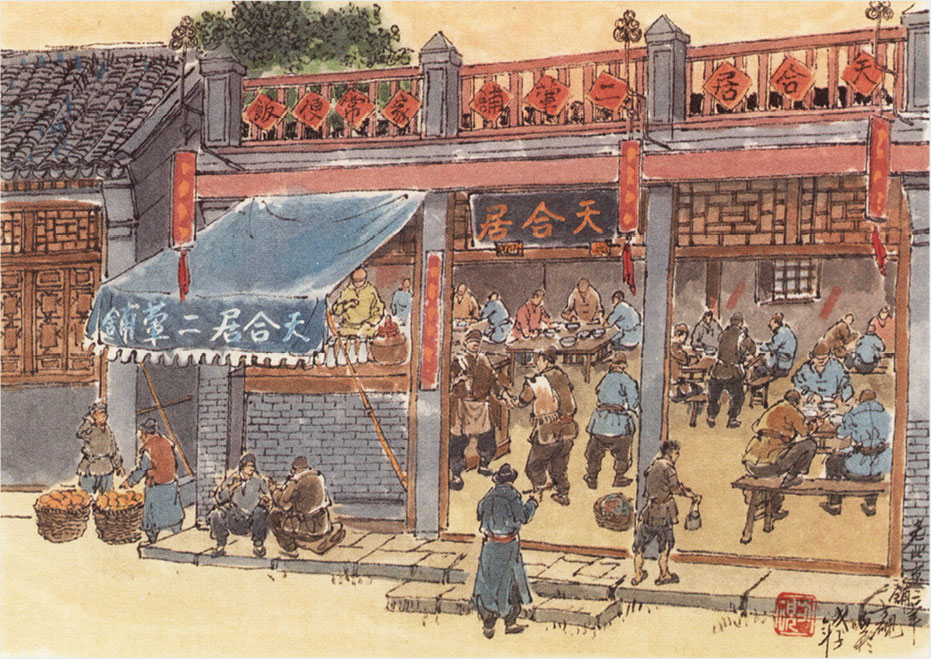老北京的平民限于个人收入和消费能力,去不起大饭庄,吃饭只能下小馆。消费水平比较低的都可以叫小馆,比如“二荤铺”。关于“二荤”有几种说法:有的讲猪肉、羊肉合为二荤;有的说是以肉和下水(内脏)共称;有的人认为店家售卖的是一荤,顾客带来材料由店家加工而成的“炒来菜”又算一荤。
Due to limited income and consumption ability, the ordinary people in Beijing couldn’t afford the luxury to eat in large restaurants. They could only afford to eat in bistros. The small restaurants with economic prices could be called as bistros, such as"Erhunpu". There were several arguments on"Erhun", some people thought it" Erhun" referred to pork and mutton. Some people thought it referred to meat and offal. Other thought that one was the meat sold by the bistro, the other was the meat brought by the customers and processed by the bistro.
